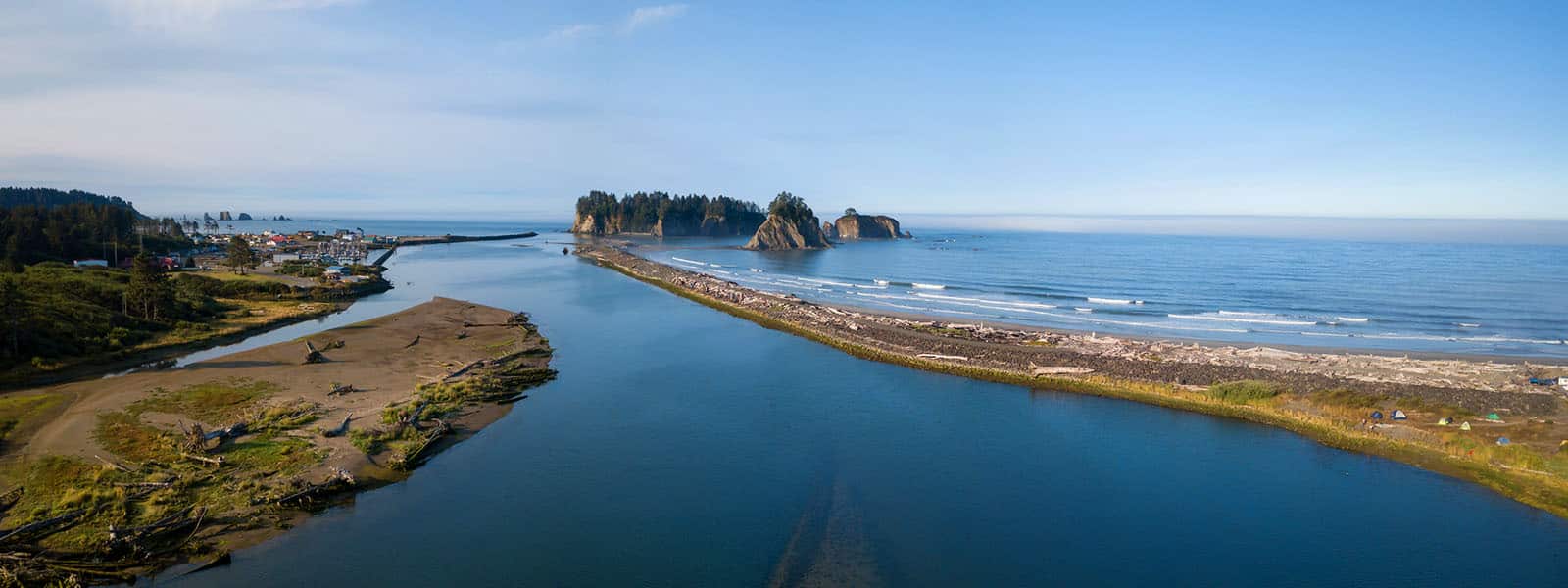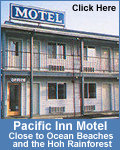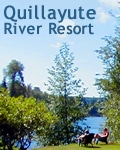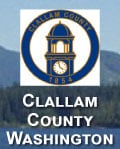Learn about LaPush, Hoh, and Neah Bay tribal areas.
In this area of abundant natural resources, people have made their homes and livelihoods for millennia. Earliest evidence of human life here is from a spearhead found in a mastodon in 1977. The spearhead was 13,800 years old, which taught us that the native people were hunters. 3000 years ago they evolved into skilled fisherman, taking advantage of the water’s resources. They used the forests for food and shelter, and used red cedar trees to make longhouses and canoes.
Europeans arrived in the late 1700’s, bringing disease that wiped out entire village. Theses new settlers competed with the tribes for natural resources. Salmon became over fished, elk were decimated, and large portions of forest was cut down. Relations between the tribes and Europeans came to a head in 1855 with the signing of the Treaty of Point No Point. Under the terms of the treaty, tribes would cede ownership of their land to the US government in return for $60,000 and relocation to small plots of land. Since then, the first people of the Olympic Peninsula have lived in these reservations.
Today, Washington Coast Native American Tribes along with their history and heritage hold an important place here on the Olympic Peninsula. While you hike the sandy beaches, lush rainforests, and mountain tops, take a moment to imagine the way of life that existed here before, and its resilient people.
Explore our Washington Coast Native American Tribes:
All visitors are asked to treat the land the same way it’s original inhabitants did with utmost respect for the life the land has brought to the Olympic Peninsula.
Quileute Tribe of LaPush
On the south side of the Quileute River is the Quileute Indian village of LaPush and First Beach, a mile-long crescent known for surfing-size waves and great whale watching, especially from February through April. Kayakers, surfers and seals often add to the view. This hospitable community offers a marina from which fishing charters operate in season, along with restaurant and lodging facilities. The tribe actively supports tourism and operates cabins, motel rooms and RV sites at its Oceanside Resort. Second Beach, just east of LaPush, is popular with photographers and is reached by way of a .7 mile forested trail that leads to a 2-mile long sandy stretch of beach – watch for the eagle nest above the tree line.
Learn about the Photography, Video, Sketching Policy HERE
Neah Bay, Home of the Makah Tribe
Along Hwy 112 are the communities of Clallam Bay, Sekiu and Neah Bay and spectacular views of the Strait of Juan de Fuca and Vancouver Island in British Columbia, Canada. Towards Neah Bay, watch for gray whales that feed in the shallow reefs along the Strait. Keep an eye out for bald eagles, particularly in late winter. Whale watching, scuba and fishing charters as well as kayak rentals and guided coastal tours are available seasonally at Sekiu and Neah Bay.
Makah Indian artifacts more than 500 years old are preserved and displayed at the Makah Museum in Neah Bay (360) 645-2711 (Open daily).
Beyond the village of Neah Bay, enjoy a spectacular .7-mile walk to Cape Flattery, the most northwestern point in the contiguous 48 states! The boardwalk trail leads through the forest to breathtaking vistas with four observation decks where one can see Tatoosh and Vancouver Islands, sea life and ship traffic. Turning south over the Waatch River near the Makah Tribal Center will lead to the scenic crescent of Hobuck Beach, which is open to the public year-round for day-use.
The Hoh Reservation
The Hoh River Indians are considered a band of the Quileutes but are recognized as a separate tribe. The Hoh Reservation consists of 443 acres located 28 miles south of Forks, and 80 miles north of Aberdeen. The Hoh Reservation has approximately one mile of beach front running east from the mouth of the Hoh River, and south to Ruby Beach.










